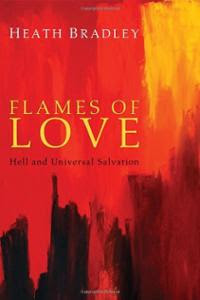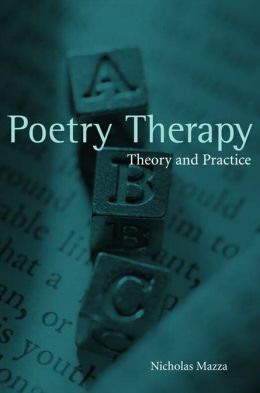Personal Knowledge by Michael Polanyi.
Here’s one I’m reading at the moment:
Christian universalists believe that ultimately God will reconcile all people through Jesus Christ. While a minority perspective, this view has been held by some of the most venerable and respected theologians throughout the Christian tradition, and has resurfaced in recent years in popular theological discussions. This wide-ranging work, written in a conversational style, draws deeply from biblical studies, early church history, and contemporary philosophy of religion to make the case that Christian universalism is a coherent, compelling, biblical, orthodox option for envisioning the life of the world to come. After offering an introductory exploration and critique of the dominant Christian view of hell, the reader is then guided through chapter-length responses to the major misunderstandings and objections to this position, which are:
•Universalists don’t believe in hell.
•Universalists don’t believe the Bible.
•Universalists deny human freedom.
•Universalists think all religions are equally true.
•Universalists have no motivation for evangelism.
•Universalists have no motivation for holy living.
Those looking for a comprehensive investigation into the current debate on hell and universal salvation will find it in Flames of Love.
http://ecx.images-amazon.com/images/I/51Wnw3QfPCL.SY344_BO1,204,203,200.jpg
http://ecx.images-amazon.com/images/I/51%2BuXcPcN%2BL.BO2,204,203,200.jpg
http://ecx.images-amazon.com/images/I/51rTOIhQBIL.BO2,204,203,200.jpg
Juggling reading all three depending on my mood at the moment, mostly the middle one. Just got to the part there where universalism is talked about for the first time – AN’s evaluation (certainly not universalistic) is that Rome’s doctrine of purgatory was too much like universalism and too closely connected to the arguments of ancient universalism patristics (including Nyssa) for the Byzantine Orthodox to accept when it started to become a topical problem in the middle of the middle ages.
Before then, he mentions nothing about universalism being an issue required by some popes for Eastern bishops to renounce for returning to Roman communion, though I know at least one or two of the Sources of Catholic Dogma feature this requirement.
The overall impression is that neither purgatory nor universalism was a reunion or schism issue until the 1200s, and that once Justinian jumped on universalism the Byzantines felt they had to follow suit in order to avoid being tarred with the other issues (mostly false in hindsight) attributed to Origen – but they followed suit rigorously (notable exceptions like Maximus Confessor excepted), much moreso than the early Eastern Fathers whom AN acknowledges tended to regard hell, purgatory and heaven as progressive versions of the same state of existence rather than discreetly different states of existence.
Let me know what you think about that Balthasar book, once you’ve given it some time. Thanks.
Derek Flood’s new book: Disarming Scripture. It’s excellent; highly recommended.
Just started reading TT2.0 yesterday. 
I am still trying to get through Elhanan Winchester’s stuff… Problem is, I don’t like the format. I wish it was in a pure PDF format instead of the scanned PDF format. Makes it a bit difficult to read. However, I did pickup a new tablet, which will make it easier to read.
^^ Some of his books aren’t even in scanned pdf, sort of – the print versions are clearly printing from scans (thus pdf), but the pdfs don’t seem to be available. Specifically, his books 3 and 4 of lectures on prophecies remaining to be fulfilled.
Here’s One More I’m Flipping Through:
http://ecx.images-amazon.com/images/I/51AJTDA94EL.SY344_BO1,204,203,200.jpg
HI [tag]Melchizedek[/tag] have you finished this book, and if so, does it mention the Passover?
I’m reading ‘The Inescapable Love of God’ Second Edition. So far it’s bloomin marvellous. 
Now reading “The Resurrection of the Son of God” by NT Wright. Exhaustive, but not exhausting. 
I’ve got to buy that and go through it at some point. Anyone else read it who can vouch for it being a good book?
I am having a second go at Surprised by hope also by Tom Wright. He does have a fondness for big technical words which slows me up a bit as I keep running to the dictionary. Why use one word which few understand when three common words will do? Perhaps it’s all about keeping the word count low to get the script into print or acceptance by ones peers. His challenging of many accepted norms WRT to popular christian thought is eye opening particularly popular hymns and songs. ie: This world is not my home I’m just a passing through. He challenges this on the basis of it being Gnostic with respect to the world. Is Granny really looking down from heaven as I go about my daily grind? The book is mostly about resurrection.
Haha! I totally get you about the long technical words. I read most things on my Kindle, and you can just touch a word and hold down to get a definition. Most of those words come up with “no definition.”  I understand if you’re writing for a scholarly audience, but for me – sometimes I have to look them up over and over again because the definitions are hard to understand (and hence to remember), too.
I understand if you’re writing for a scholarly audience, but for me – sometimes I have to look them up over and over again because the definitions are hard to understand (and hence to remember), too. 
Hey! I’m going to be starting “Surprised by Hope” when it arrives in about one week. I’m reeeeaaaalllly looking forward to it.
I’ve also just began reading “Galatians - A New Translation with Introduction and Commentary” by J.Louis Martyn for a group Bible study I’m doing with some peeps. Hopefully, I will gain a better understanding of what the Apostle Paul meant when he spoke about the “truth of the Gospel.”
Hi Chris - and Happy New Year.
I can understand his point about Granny (particularly if he believes in soul sleep) though the alternative is also an orthodox and scriptural viewpoint. But I am very surprised regarding his idea that ‘we are strangers in a strange land’ (which is straight from scripture) is in any way gnostic.
I wonder how he forms this conclusion in the light of 1 Peter 2 v 11-12:
Presumably he must regard Peter as a gnostic or the book 2 Peter as non Canonical??
I have finished it; I think it does mention something about that, at least in passing. I’m having trouble recalling specifically though.


